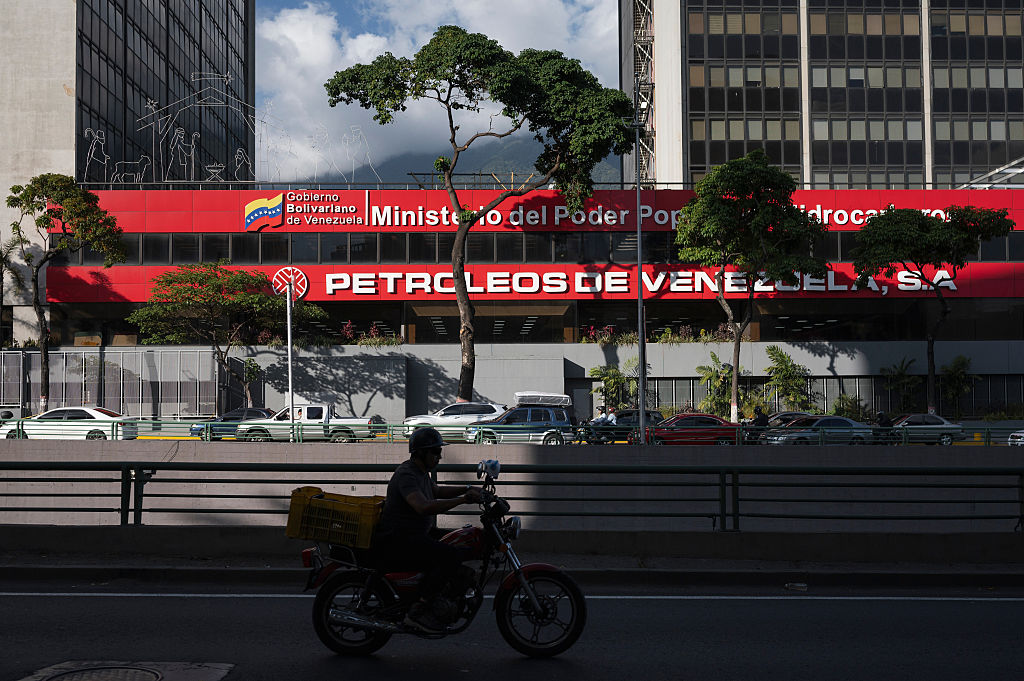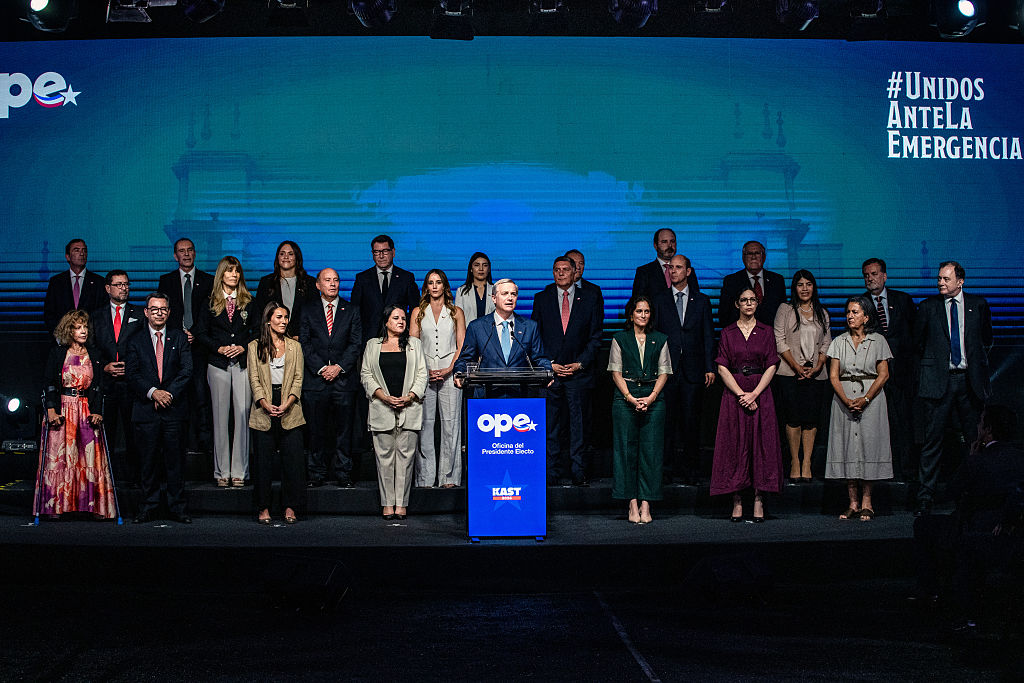Congressional Testimony: Iran in the Western Hemisphere
Congressional Testimony: Iran in the Western Hemisphere
"Countries where democracy is weak...have proven, time and time again, to be the most likely portals through which unhelpful influences such as Iran are introduced into the region," explained COA's Vice President Eric Farnsorth in testimony to U.S. Congress.
SUBCOMMITTEE ON THE WESTERN HEMISPHERE,
SUBCOMMITTEE ON THE MIDDLE EAST, AND
SUBCOMMITTEE ON TERRORISM, NONPROLIFERATION AND TRADE
U.S. HOUSE OF REPRESENTATIVES
OCTOBER 27, 2009
ERIC FARNSWORTH
VICE PRESIDENT
COUNCIL OF THE AMERICAS
***As Prepared for Delivery***
Good afternoon, Mr. Chairmen and members of the Subcommittees. Thank you for the opportunity to testify before you today on such a timely and important issue. This hearing today continues your outstanding efforts to highlight the most pressing issues in hemispheric affairs by the full Committee as well as by the relevant Subcommittees, and I congratulate you for your leadership on these issues. I’m also pleased to share this table with others of such stature and prominence.
Recent reports on Iran’s presence in the Americas provide an excellent opportunity for us to evaluate the situation on the ground, and what it means for the Western Hemisphere and for the United States. The bottom line is that we are dealing with imperfect information in terms of the nature of Iran’s presence in the Western Hemisphere, the intentions of the Iranian regime, and the implications for regional security, democracy, and development priorities.
What is clear, however, is this: nations that disrespect democratic principles in the Americas tend also to be nations that offer aid and comfort to global actors who reject the norms of the international system. Ungoverned regions within countries offer permissive environments for mischief-making. And a weak inter-American system offers little in terms of the ability to counterbalance extralegal or threatening acts.
As I have said many times, both in Congressional testimony and also in other forums—and as the ongoing crisis in Honduras shows—the first priority of the hemisphere must therefore be to strengthen democracy and the institutions of democratic governance. Although a flurry of think tank reports for the new Administration ignored the central point, this is not a theoretical, academic exercise. Given different historical realities, democracy is more advanced in some countries than others, and it must be nurtured and reinforced as a priority. It is a fundamental national security interest of the United States, because healthy democracies in Latin America and the Caribbean make better partners to advance a common agenda, such as that discussed and promoted at the Summit of the Americas in Trinidad and Tobago in April.
On the other hand, countries where democracy is weak, where the institutions of the state are ineffective, or where democratically elected leaders have in fact curtailed democratic institutions for their own purposes have proven, time and time again, to be the most likely portals through which unhelpful influences such as Iran are introduced into the region.
Of course, each nation of the Americas is a sovereign, independent state. Each nation has the ability, indeed the right, to maintain relations with whomever they wish, subject to prevailing international law and practice. It is truly unfortunate, however, that any nation of the Americas would go out of its way to intensify state-to-state relations with Iran, a regime that has been repeatedly identified as a state sponsor of terror, which has been directly implicated in the only examples of extra-regional terrorist acts in the Americas other than 9/11, and which is in violation of numerous UN resolutions.
In this regard, Venezuela’s aggressive efforts to midwife Iran’s entry into the Americas through reciprocal leaders’ visits, trade and commercial agreements including air links, and friendly votes in bodies such as the UN and the International Atomic Energy Agency are, at best, polarizing and counterproductive. At the same time, when the list of hemispheric priorities includes economic recovery from deep global recession, job creation to eradicate poverty, energy and global climate change, and reducing a comparative education deficit, among others, it would seem to make little sense for leaders like those in Bolivia, Ecuador, and Nicaragua to take actions to undermine the very cooperation that they need, and claim to want, from the United States.
For Iran, however, whatever the true intentions of the regime, the benefits of closer relations in the Americas are not in doubt. At a relatively benign level, Iran is able to build commercial relations with other parts of the world, especially in agriculture. They are able to exchange information and technology, particularly on energy, and gain access to raw materials, which may include uranium. At another level, by developing close regional ties, Iran has the ability to leapfrog its international isolation, while making common cause with others who have self-identified as opposing the United States and other Western nations. The regime is also able to build international coalitions in support of its domestic activities, including the potential development of a nuclear capability. Finally, by expanding its diplomatic representation, Iran has enhanced its intelligence capabilities while outreaching, should it choose to do so, to non-state actors and affinity organizations which may be working to raise funds for certain activities in the Middle East or which may be building their own extralegal capabilities in the Americas.
It is certainly possible to overstate the threat. Rumors fly around with ease. We have to have a clear-eyed view of realities on the ground, and it’s difficult to connect the dots accurately because we still don’t have a firm grasp on Iranian intentions in the Americas. In fact, the US Army War College Strategic Studies Institute’s 2009 Strategic Issues List does not even mention Iran in its top 20 evolving regional security issues for the Western Hemisphere. But, at the very least, these are issues that should be watched with a careful, wary eye.
With this in mind, the pending visit of Iran’s president to Brazil next month is concerning. Not because the Brazilian government wants to engage with other nations around the world in support of its own regional and global ambitions, but rather because Brazilian engagement with Iran will give a boost to the Ahmadinejad regime even as the international community seeks in Vienna to find a solution to the nuclear proliferation dilemma.
This is playing with fire. There is no need for Brazil’s president to honor the Iranian president with an official visit to Brazil at this delicate time. To the extent the visit goes ahead, one would hope that the Brazilians would use the opportunity to reaffirm that the Western Hemisphere is no place for Iranian meddling, and would seek to use their access for the purpose of supporting international community non-proliferation efforts.
For the United States, several actions are appropriate at this point. First, we should not over-react to Iran’s presence in the Americas. We should be wary, we should be watchful, prepared to act in concert with others, but we should not act on incomplete information unnecessarily nor take steps precipitously. Communication and close coordination with our friends and allies in these matters, particularly law enforcement cooperation, should be pursued, as we work together to build an expected norm of responsible democratic behavior in the hemisphere, and work to de-legitimize actions that go against these norms.
Second, we should continue to emphasize the hemispheric growth agenda, including trade and investment expansion and the rule of law, which will help build strong and expanding middle classes and reinforce just, transparent societies that are less prone to authoritarian manipulations from elected leaders of any ideology or stripe.
And finally, I would return to where I began. In testimony before the Western Hemisphere Subcommittee earlier this year, I said that despite our efforts to build democracy elsewhere around the world, the United States cannot be complacent about such matters closer to home. Honduras proves the point. Democracy offers no guarantees, but we stand a much better chance of achieving our strategic goals in the hemisphere—including a peaceful, growing, vibrant region that works in tandem with us to address issues of common concern and rejects outside meddling—if democratic institutions in the Americas are strong.
Thank you, again, for the opportunity to be with you today, and I look forward to your questions.








